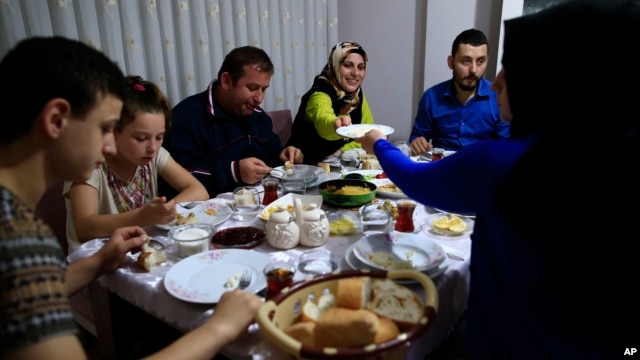Happy Ramadan to all the peaceful Muslims out there. To the extremists, I hope you can restrain yourself until this important holiday is over, unlike other years when you ramped up the killings.
Muslim holy month of Ramadan begins June 6
05.06.2016 18:07 InternationalSigmaLive

Ramadan, the ninth month of the Islamic calendar, is a time when Muslims abstain from food, drink, smoking and sex from sunrise to sunset. It is a time of self-examination and increased religious devotion, as well as a time of increased religious observance and socializing, with families sharing rich meals after sunset followed by gatherings with friends or neighbors.
Welcoming the holy month of Ramadan, pious residents in Istanbul are expected to fill mosques to perform “Tarawih” prayers, an extra prayer specific to Ramadan, according to the practices of the Prophet Muhammad, which is performed by Muslims following the obligatory night prayer known as “Isha.” The historic Blue Mosque and the Eyüp Sultan Mosque are the two most symbolic spaces for these prayers during Ramadan in Istanbul.
The holy period creates a unique atmosphere in Istanbul - changing millions of people’s eating habits, working practices and praying times.
- See more at:
Muslim holy month of Ramadan begins June 6 | News
Muslim holy month of Ramadan begins June 6
05.06.2016 18:07 InternationalSigmaLive

Ramadan, the ninth month of the Islamic calendar, is a time when Muslims abstain from food, drink, smoking and sex from sunrise to sunset. It is a time of self-examination and increased religious devotion, as well as a time of increased religious observance and socializing, with families sharing rich meals after sunset followed by gatherings with friends or neighbors.
Welcoming the holy month of Ramadan, pious residents in Istanbul are expected to fill mosques to perform “Tarawih” prayers, an extra prayer specific to Ramadan, according to the practices of the Prophet Muhammad, which is performed by Muslims following the obligatory night prayer known as “Isha.” The historic Blue Mosque and the Eyüp Sultan Mosque are the two most symbolic spaces for these prayers during Ramadan in Istanbul.
The holy period creates a unique atmosphere in Istanbul - changing millions of people’s eating habits, working practices and praying times.
- See more at:
Muslim holy month of Ramadan begins June 6 | News

